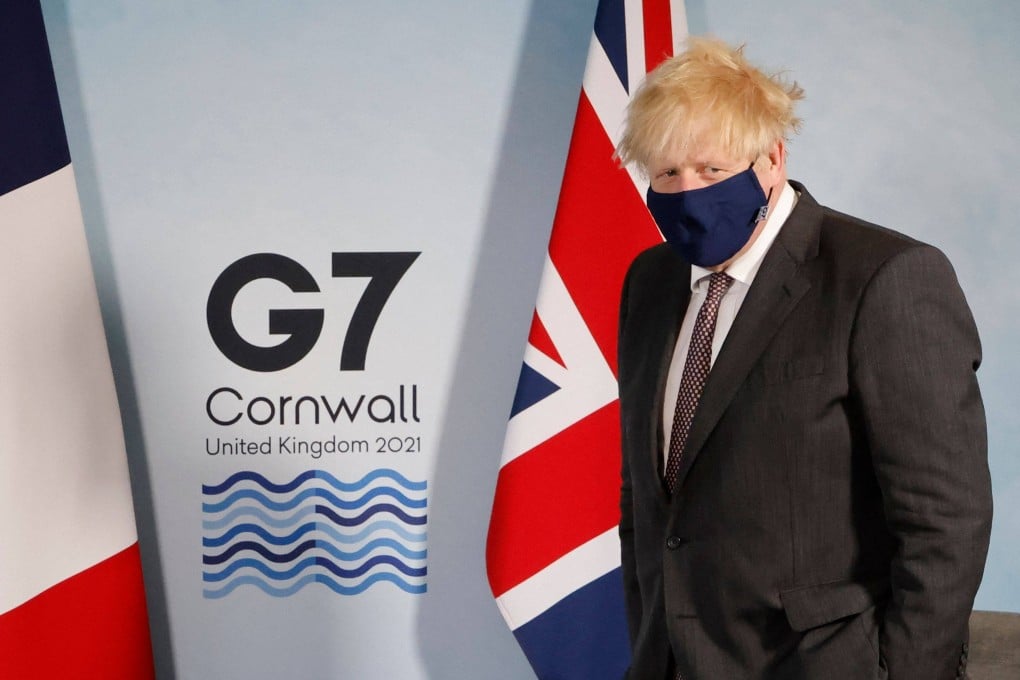Advertisement
G7 leaders adopt ‘Build Back Better World’ plan to rival China’s belt and road strategy
- The US, Canada, Britain, Germany, Italy, France and Japan aim to show that the B3W plan can offer an alternative to China’s growing clout
- The leaders also agreed on an action plan to prevent future pandemics
Reading Time:3 minutes
Why you can trust SCMP
51

The Group of Seven richest democracies on Saturday sought to counter China’s growing influence by offering developing nations an infrastructure plan that would rival President Xi Jinping’s multitrillion-dollar Belt and Road Initiative (BRI).
The G7, whose leaders discussed strategic competition with Beijing during their meeting in southwestern England, has been searching for a coherent response to the growing assertiveness of Xi after China’s surging economic and military rise over the past 40 years.
US President Joe Biden and other G7 leaders hope the plan, known as the Build Back Better World (B3W) initiative, will provide a transparent infrastructure partnership to help narrow the US$40 trillion needed by developing nations by 2035, the White House said.
Advertisement
“This is not just about confronting or taking on China,” a senior official in Biden’s administration said. “But until now we haven’t offered a positive alternative that reflects our values, our standards and our way of doing business.”
The G7 and its allies will use the initiative to mobilise private sector capital in areas such as climate, health and health security, digital technology, and gender equity and equality, the White House said.
Advertisement
Advertisement
Select Voice
Select Speed
1.00x